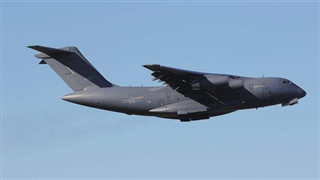By Li Zhe, Bai Ping
The IAEA Board of Governors Meeting set up a new agenda on November 24, and for the first time dedicated discussions on the nuclear submarine cooperation among the US, UK and Australia (AUKUS) and its safeguards in all aspects under the NPT (Treaty on the Non-Proliferation of Nuclear Weapons), with which the board members are seriously concerned. This once again highlighted the serious risk of nuclear proliferation triggered by the AUKUS nuclear submarine deal – it will not only exert far-reaching impacts on the international non-proliferation system, but also threaten regional peace and stability.
Nuclear non-proliferation regime shocked
The US and the UK will help Australia develop nuclear-powered submarines, which has fundamentally undermined the value and significance of the nuclear non-proliferation regime.
First, the NPT pointed out that nuclear states shall not transfer nuclear weapons or nuclear explosive devices to non-nuclear states directly or indirectly, nor shall they help non-nuclear states manufacture nuclear weapons. Yet the US and the UK are taking a borderline approach to help Australia obtain nuclear capabilities in the name of selling it nuclear-powered submarines. This move goes counter to the NPT on the operational, legal and moral levels. It challenges the nuclear non-proliferation regime and aggravates the risks of proliferation.
Second, the US and the UK playing double standards on the nuclear issue creates new hurdles to resolving the Korean nuclear issue and Iranian nuclear issue, both of which are in suspense. The new AUKUS deal is very likely to render vain the international community’s previous efforts to prevent regional nuclear proliferation.
Besides, the AUKUS nuclear cooperation will add new factors of instability to the already fragile global strategic stability. Washington and Moscow renewed the Strategic Arms Reduction Treaty (New START) in February this year, but the new treaty doesn’t provide a good solution regarding non-strategic nuclear weapons that can affect strategic stability, such as medium- and short-range missiles, unmanned underwater vehicles, hypersonic weapon and anti-missile system. Through the nuclear submarine cooperation, the US can strengthen the ties with its allies and also find an asymmetrical way around Russia’s “defense penetration” capability that has been comprehensively fortified by its hypersonic weapon development in recent years. However, the move may also push the US-Russia relation into a “nuclear security dilemma” again and trigger a new round of nuclear arms race.
Regional security landscape undermined
After the US-Japan-ROK alliance, the Five Eyes Alliance comprising the US, the UK, Australia, Canada and New Zealand, and the Quad regime of the US, Japan, India and Australia, Washington is now forging a new Anglo-Saxon military alliance of itself, the UK and Australia based on nuclear-powered submarine cooperation. The AUKUS security partnership is also complicating America’s strategic alliance system while bringing negative effects to the Indo-Pacific security situation.
A historical review would show that the current alliance strategy of the US government is a combination of the offshore balancing strategy advocated by former British prime minister Henry John Temple Palmerston and the alliance system of former German chancellor Otto Von Bismarck. On the one hand, Washington is establishing a multi-dimension, complicated alliance strategy by building carefully calculated relations with its allies and partners based on strength, status and geography. On the other hand, it is borrowing the allies’ and partners’ strengths to reinforce its own advantages in the attempt to create a strategic layout with the American homeland as the backyard, the island chains as the basis, and the West Pacific, South Pacific and Indo Pacific as the forefront. Such a multi-dimension alliance system has jeopardized regional security situation and aggravated geopolitical tension.
To meet their own geopolitical and military purposes, the US, the UK and Australia are blatantly stirring up confrontation and division in the region, aggravating the arms race, and damaging regional peace and stability, which has caused grave concerns in the international community. The three countries should heed the call from the international community, revoke their wrong decisions, faithfully fulfill their obligation of international nuclear non-proliferation, and do more to contribute to regional peace, stability and development.











